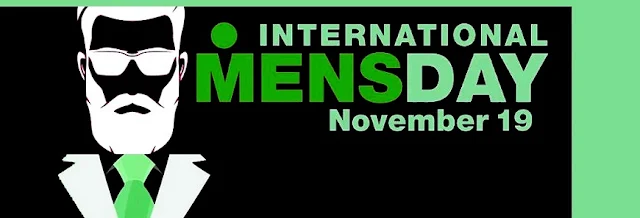Is International Men's Day is useful
International Men's Day persists as a day to express gratitude for the positive male figures in our lives and acknowledge the numerous achievements of men. Similar to International Women's Day, it also serves as a platform to address the challenges and disadvantages faced by men, such as homelessness.
Statistics from the Australian Bureau of Statistics reveal that 59% of homeless individuals in Australia are men, while in the USA, just under 61% of the homeless population is male. Male suicide rates, averaging one every four hours in Australia, highlight another concerning issue.
Male victims of domestic violence, a somewhat overlooked topic, make up one in three cases according to the ABS. Additionally, fewer men graduate from high school and university, and the majority of military and workplace deaths are male-related. Men often occupy the most perilous jobs, work longer hours, contribute more to taxes, yet receive less from welfare, and have a shorter life expectancy compared to women.
Given these distressing statistics, it seems reasonable to use November 19th as an opportunity to shed light on these serious issues and work towards solutions, much like we do on International Women's Day.
However, the left-wing dominated mainstream media, along with feminist thought leaders, exhibit a peculiar animosity towards International Men's Day. Rather than acknowledging the day, they use it as an opportunity to mock men, men's rights activists, and anyone suggesting that men face challenges.
This feminist animosity stems from the third-wave feminist narrative, largely built on the concept of "male privilege." According to this narrative, men, particularly white men, are seen as inherently privileged over women solely based on their gender. The belief in a patriarchy and an imbalance of power fuels this perspective.
The feminist narrative relies on the debunked wage gap and the underrepresentation of women in high-paying positions as evidence of male privilege. However, this argument is based on the apex fallacy, assuming the experiences of successful men represent the experiences of all men.
The feminist mindset, deeply rooted in a Marxist framework, sees the struggle as oppressor men versus oppressed women. They contend that men inherently oppress women by their mere existence. This belief fosters a tribal mentality, alienating women who don't align with feminist principles.
Feminists fear that discussions about men's issues will detract from women's issues due to their belief in a fixed amount of equality. This perspective undermines the possibility of simultaneous advocacy for both men's and women's rights. Feminists prefer equality of outcome, exemplified by quotas, rather than equality of opportunity and merit.
Despite the apparent absurdity of this feminist mindset, it is essential to approach it with understanding. Acknowledging the challenges faced by men doesn't diminish the importance of addressing women's issues. Both men and women face unique struggles, and fostering a better world requires addressing these issues collectively. Instead of dismissing feminist perspectives outright, it's crucial to engage in open dialogue and foster mutual understanding.

Hi! Very interesting posts I have found on this blog, so thanks for sharing useful information like this! I can advice this blog to all my guys for sure! But what about studying, who can write essay today?! If you happen to need writing help, than professional creators of essays at this online writing agency will provide you with remarkable essays and other types of assignments. They provide the highest quality services and fair prices. Barely click on their webpage and it will become your favorite company in your nearest future!!!
ReplyDelete